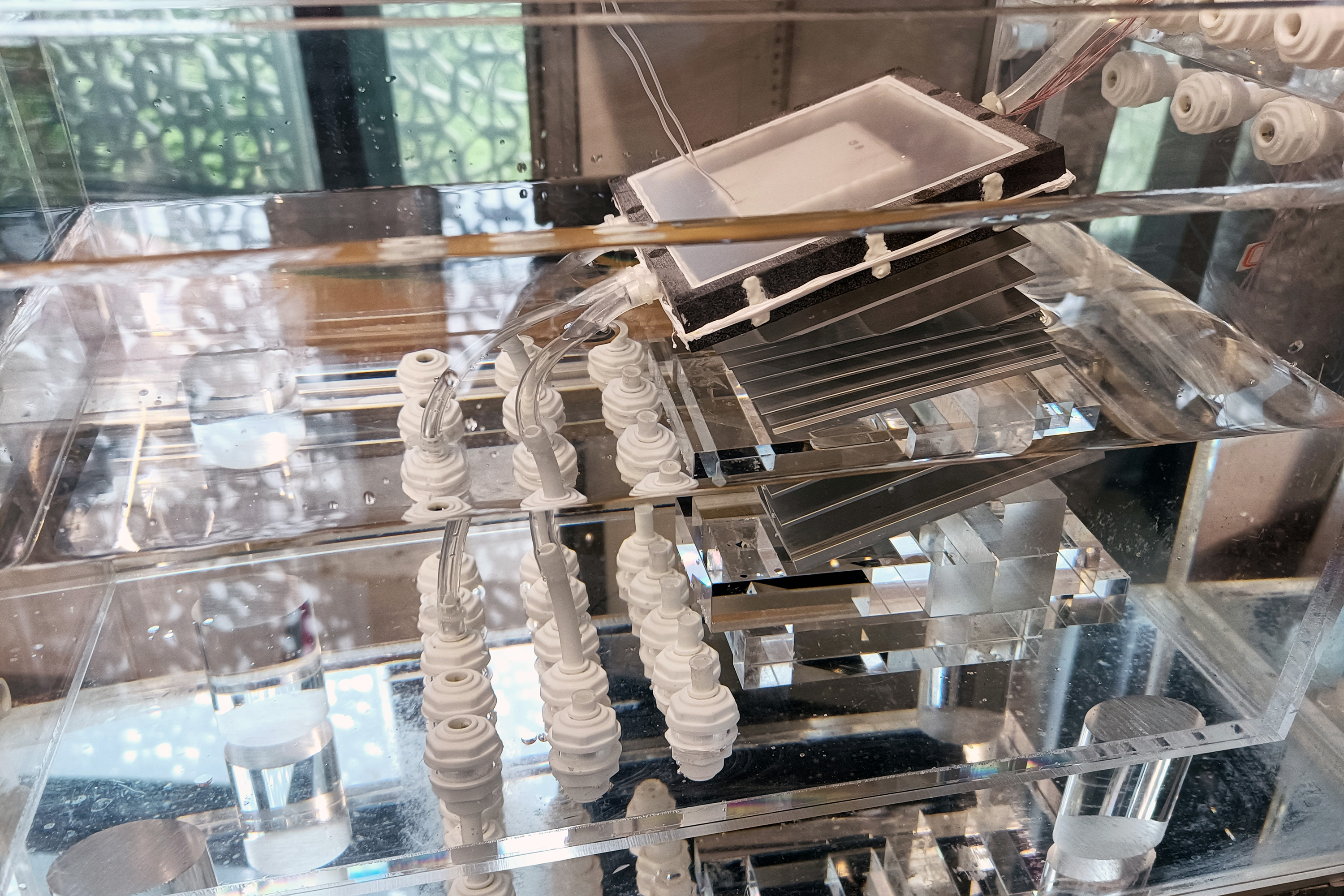Engineers at MIT and in China are aiming to turn seawater into drinking water with a completely passive device that is inspired by the ocean, and powered by the sun.
In a paper appearing today in the journal Joule, the team outlines the design for a new solar desalination system that takes in saltwater and heats it with natural sunlight.
The researchers estimate that if the system is scaled up to the size of a small suitcase, it could produce about 4 to 6 liters of drinking water per hour and last several years before requiring replacement parts. At this scale and performance, the system could produce drinking water at a rate and price that is cheaper than tap water.



This sounds fantastic on its face, but I seem to keep on hearing about how desalination will solve all kinds of problems and we still have this particular problem.
The missing piece, it seems, is the will for it to be used as infra at scale. Meanwhile selling bottled water taken for free from public lands for several dollars a liter in single-use bottles remains a multi-billion dollar industry. (an industry, I might add, that is aggressive about lobbying to protect its interests)
Devices like this are a lifeline for communities in developing nations. Who are the first and worst affected by water shortages and salt water intrusions into their fresh water sources.
Also the poorest and least likely to get the help from the people with the resources to help.